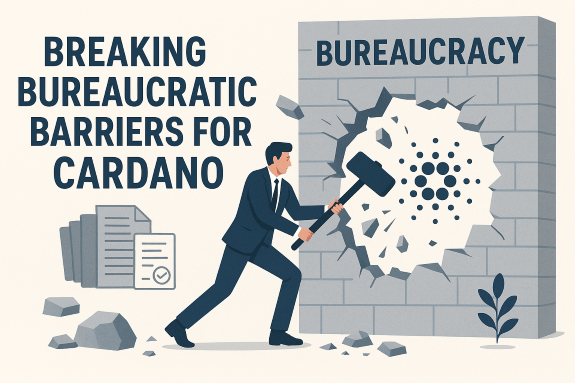Web3 Ethical Hacking: Securing the Blockchain Ecosystem
In this episode of the Real World Blockchain Podcast, hosted by Zoe Braiterman and co-hosted by Niles Smith, special guest Philip Wylie joins the conversation to explore the crucial intersection of cybersecurity and Web 3 technologies. Philip, a seasoned expert with over 20 years in the cybersecurity field, delves into the importance of ethical hacking (also known as penetration testing or pentesting) and its role in safeguarding the evolving blockchain ecosystem. The discussion emphasizes the need for both developers and users to adopt strong security practices as they navigate the transition from Web 2 to Web 3.
What is Ethical Hacking (Pentesting)?
Ethical hacking, or pentesting, is the practice of testing systems for vulnerabilities using the same techniques that malicious hackers would employ. Philip Wylie explains how ethical hackers simulate cyberattacks to identify weaknesses in systems and networks, providing an essential layer of security for organizations. By proactively detecting flaws, ethical hackers help to secure systems before they can be exploited, making pentesting a critical practice in the ever-evolving cybersecurity landscape.
The Importance of Security Hygiene in Web 3
The podcast highlights the need for proper security hygiene as individuals and organizations move into the Web 3 space. Philip emphasizes the importance of adopting best practices, such as using password managers, enabling two-factor authentication, and avoiding password reuse. While tools like password managers offer convenience, users must also be aware of the trustworthiness of these services and stay informed about past security breaches. Educating oneself about the latest threats and practicing good security hygiene are fundamental steps in protecting personal and digital assets.
Transitioning from Web 2 to Web 3
The move from Web 2 to Web 3 represents a fundamental shift in how users interact with the internet and manage digital assets. Web 3, which revolves around decentralization and blockchain technologies, places greater responsibility on individuals to safeguard their assets. As Philip notes, self-custody of digital assets is a significant change from traditional methods in Web 2. Users now must take a more proactive role in securing their private keys and personal information, particularly as the value stored on blockchain networks continues to grow.
Open Source vs. Closed Source Security Tools
The episode also touches on the debate between open-source and closed-source security tools. Philip discusses the advantages of open-source software, such as transparency and community involvement, but also cautions that these tools can have vulnerabilities if not properly maintained. On the other hand, proprietary software offers a more controlled environment but may be less transparent. As with any technology, the decision between open-source and closed-source tools comes down to the specific use case and the level of trust a user has in the software provider.
Recognizing and Avoiding Phishing Scams
Phishing remains one of the most common and effective forms of cyberattack. In the podcast, Philip and Niles provide actionable tips for identifying phishing attempts, including recognizing red flags such as unfamiliar sender addresses, poor grammar, and suspicious URLs. Users are encouraged to stay vigilant, as phishing emails can often appear convincing and be designed to trick individuals into revealing sensitive information.
Sandboxing for Extra Security
Philip also explains the value of using sandbox environments to test potentially harmful URLs or applications safely. By isolating suspicious activities from the primary system, users can explore and analyze potentially malicious content without exposing their main operating system to risk. This technique is essential for anyone looking to interact with unfamiliar websites or applications, especially within the blockchain and Web 3 space.
Continuous Education and Awareness
As the cybersecurity landscape continues to evolve, the need for ongoing education is paramount. The hosts and guest emphasize the importance of staying informed about the latest security threats, tools, and best practices. Developers, businesses, and individual users all share the responsibility of fostering a culture of security awareness, ensuring that the blockchain ecosystem remains secure as it grows.
Conclusion
In this episode of the Real World Blockchain Podcast, the hosts and Philip Wylie provide valuable insights into the world of ethical hacking and cybersecurity in the Web 3 era. As technology continues to advance, it is essential fo







